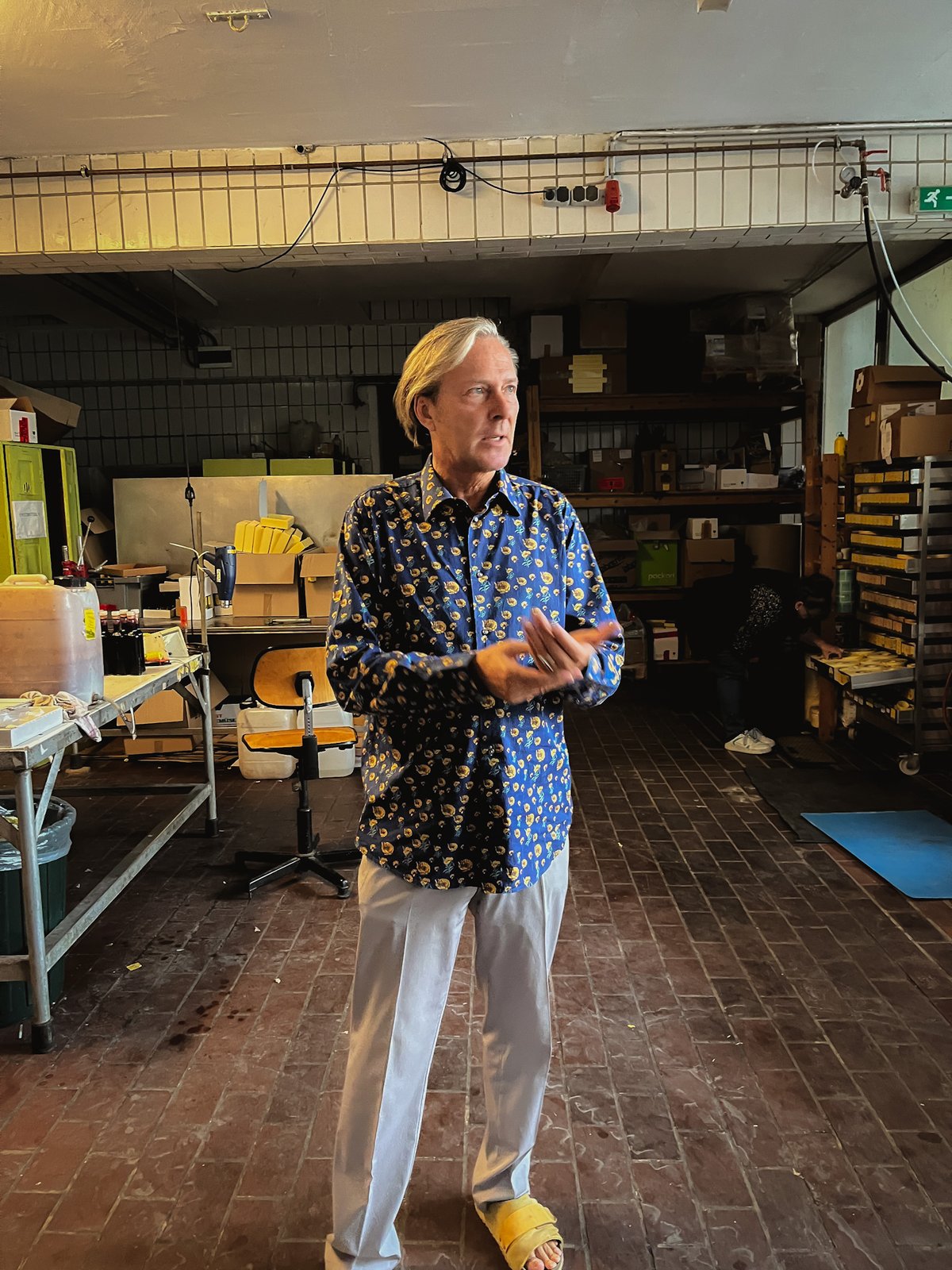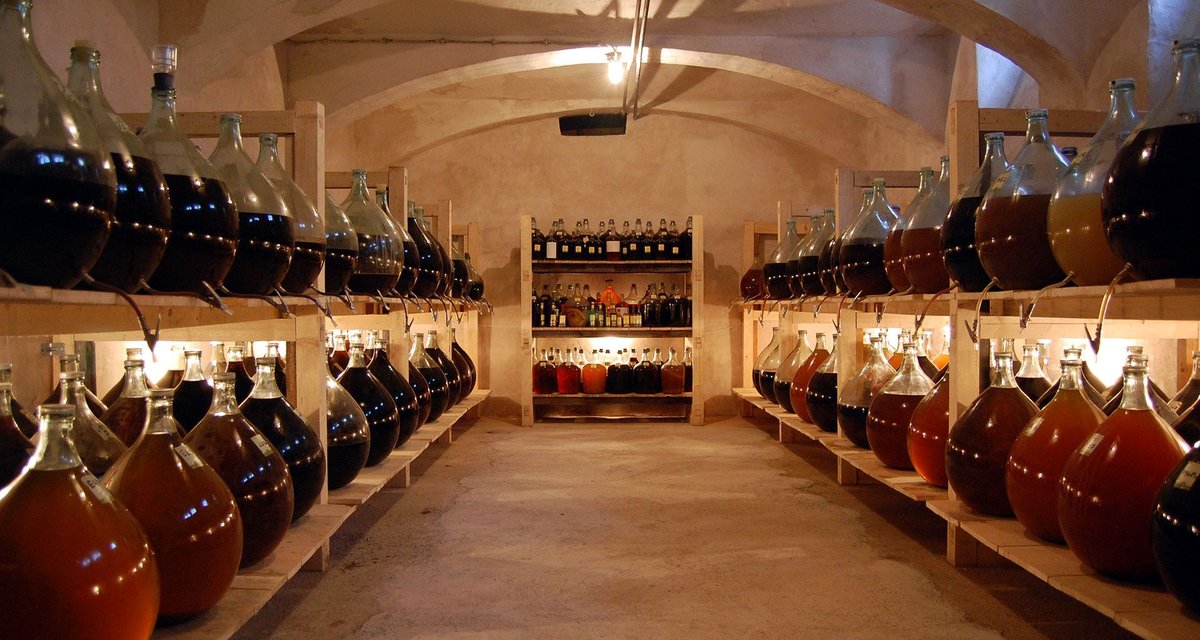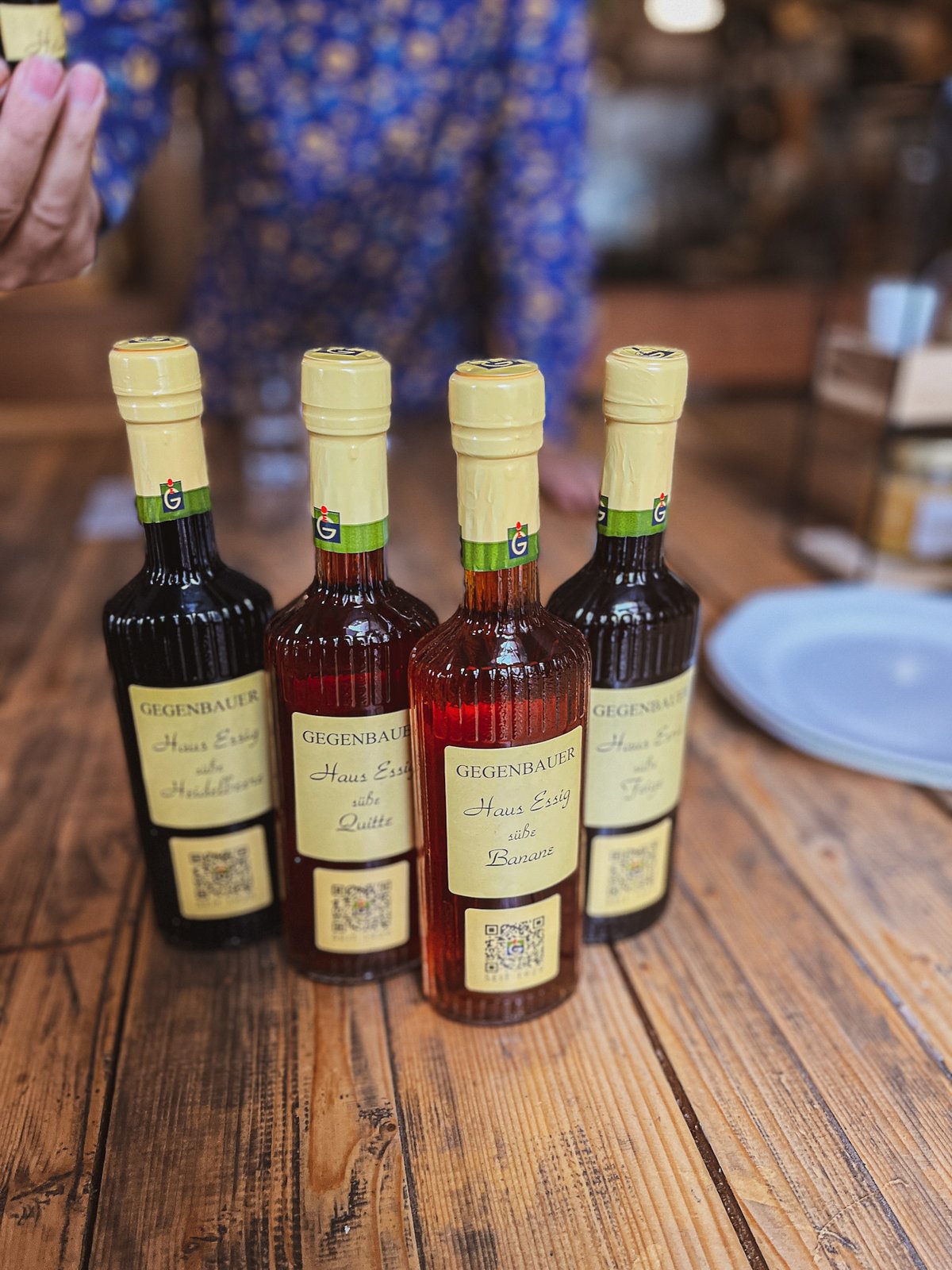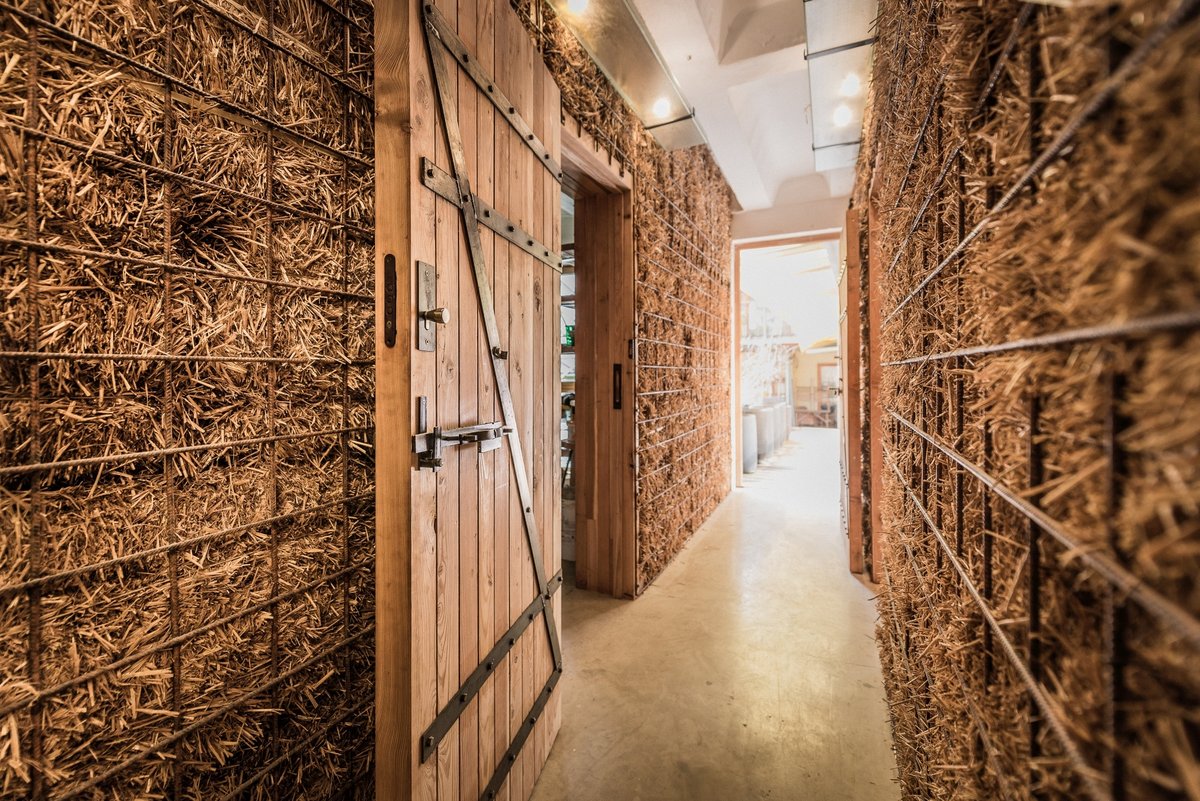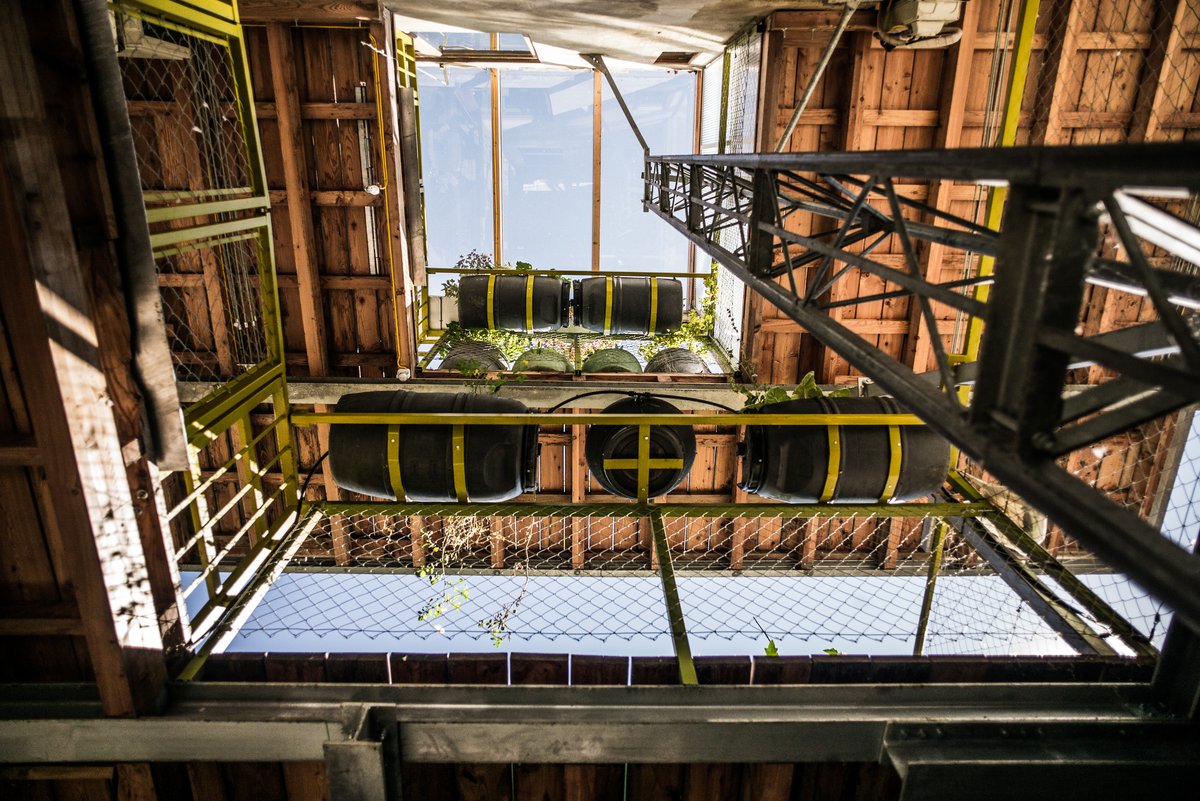Erwin Gegenbauer - the unconventional and uncompromisable vinegar maker from Vienna
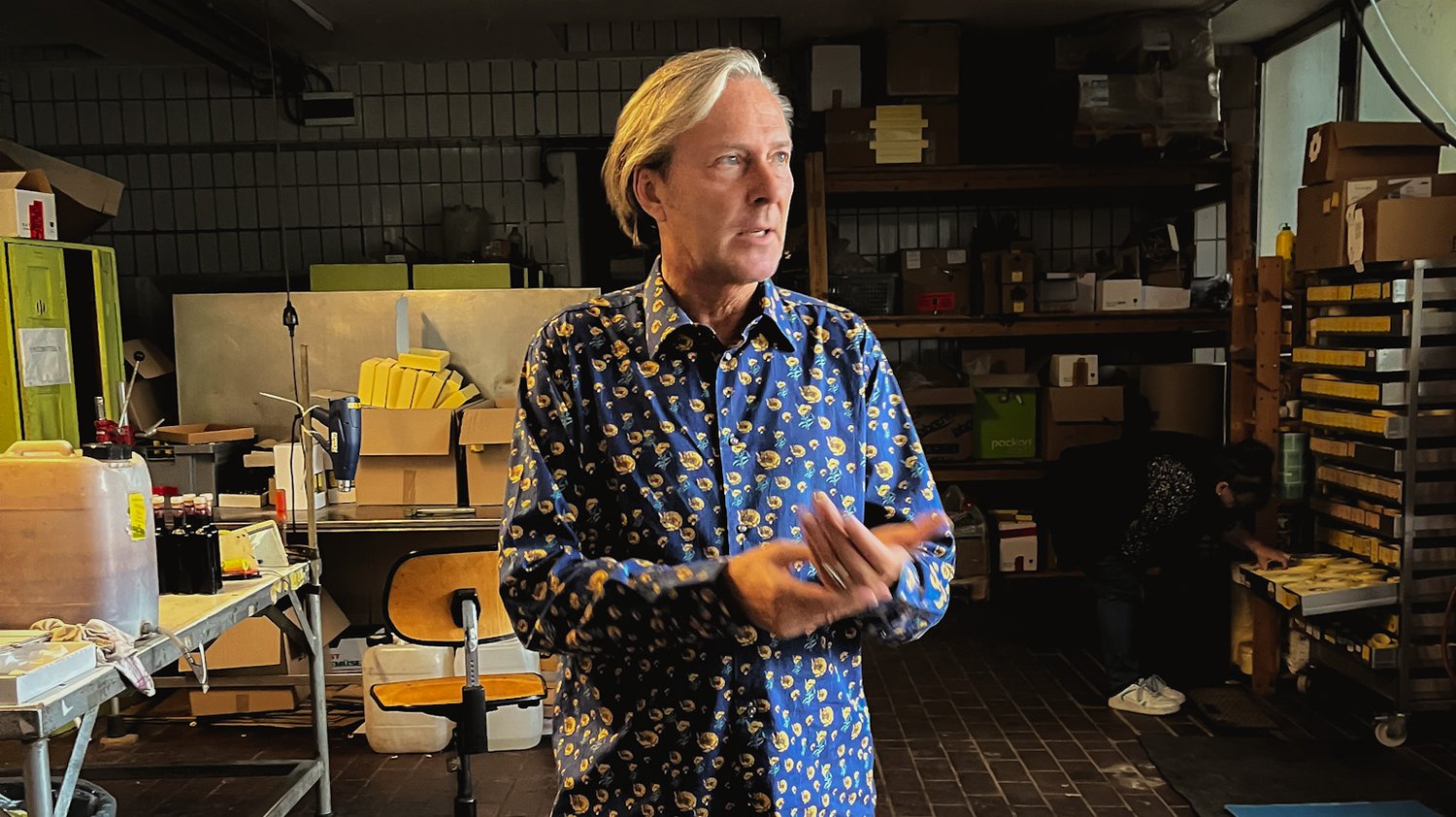
Erwin Gegenbauer comes from a family that is Austria’s biggest producer of canned food, a heritage that he consciously left behind in 1992, to instead focus on small-scale, quality-focused production. An unconventional, restless and uncompromisable vinegar maker, for over a decade, he has revolutionised the perception of vinegar as a noble top-quality product, and consequently is a supplier to the most refined Michelin-starred restaurants around the world, but this accolade doesn’t satisfy him as much as it once did.
These days he’s also a modern urban farmer, owning a cosy yet minimalistic urban bed & breakfast that sits on the second floor of his tiny vinegar production site in the Favoriten district of Vienna. Despite its small size, the vinegar production business produces over 70 different types of vinegar. Fruit and vegetable vinegars, grape vinegars such as Muskat Ottonel Trockenbeerenauslese and Riesling Auslese, balsamic vinegars, such as elderberry and golden apple, and two kinds of noble sour vinegars, including the typically sweet sherry grape Pedro Ximenes. None of the vinegars produced here are pasteurised or filtered.
His strive for perfection is embodied throughout the whole bed & breakfast gastronomy and living experience. There’s an in-house coffee roastery, created simply because Gegenbauer couldn’t find the perfect coffee elsewhere. There are chickens, fed with vinegar leftovers. There are slow-pressed fruit kernel oils, ciders and beers. While the rooms are quintessentially minimalistic, there are no TVs or other distractions. The rooftop terrace is a source of entertainment, a relaxing place to observe the peaceful chickens and sample some rooftop-grown raspberries or grapes. Here he also stores his vinegars, left to mature in oak barrels.
"Cool-pressed kernel oil not cold-pressed”
Every oil tastes best when freshly pressed. We have provided the pressing heads with a jacket through which cooling liquid flows.
The oils are pressed cooled, the temperature of the seeds is lowered during the pressing process, ensuring the precious fragrances do not escape with the warm air, instead, they are completely preserved within the high-quality oil.
We produce our oil from fruit kernels such as plum, raspberry, and aronia. Using this process results in less end product, but it has a fuller flavour.
"When I hear slow, I feel quality”
Taste for me is about a cultural treasure. For me, this is expressed in the fact that we are shaped by our ancestors, in terms of local and national dishes, but also by how we grew up in our family. We learned a lot from looking into our grandparents' pots and eating together, for example. For me, it's about sitting, discussing, laughing, and arguing together as a family. In this way, we revive and preserve taste and deal with it mentally.
How would you describe your personal gastronomic taste?
Either I want a simple sausage from a sausage stand, or high-class gastronomy, but nothing in between.
What principles do you use to buy products for your family?
Labels don't interest me at all. I buy from producers I know personally and trust. These are people who work in such a way that I can give my family culinary pleasure with their food without putting any additives in front of them.
"We are the generation without machines". Can you elaborate on this in relation to your production process?
We don't use machines in bottling. That has to do with the fact that the trend is moving more and more towards automation, and that can't be stopped. In my opinion, we need a balance to this, where we experience a haptic moment. That means feeling the bottle, seeing the vinegar, smelling it and tasting it. This is not a counter-movement to technology, but a complement, through which the craft is defined more, that has a high value for me.
Why did you decide to roast the beans in your space and serve your own coffee, where do you get them from?
Our beans come from Indonesia, the Ethiopian highlands and Central and South America. I couldn't get any more coffee that I liked according to my personal taste. That's why I decided to roast my own.
"Cool pressed kernel oil not cold-pressed»
Every oil tastes best when freshly pressed. We have provided the pressing heads with a jacket through which cooling liquid flows.
The oils are pressed cooled, the temperature of the seeds is lowered during the pressing process, letting the precious fragrances do not escape with the warm air, they are completely preserved in the high quality oil.
We produce our oil rom fruit kernels such as plum, raspberry, aronia and with this process we get less resulting product, but have the full flavour.
"Good vintage of apples" - why do you think we don't pay attention to the vintage of the fruit in the vinegar production?
In the case of wine, everyone has learned by now that there are good and bad vintages. But the same is true for all fruits. If the grapes are good, that doesn't mean it was a good year for apples. Every fruit develops because of the weather, we think about that far too little. Conversely, if it was a bad year for pears, I can't make vinegar from them. That's why I prefer to wait until a good pear vintage comes along and then produce enough to be able to sell over the next few years.
"Bacteria that understands wine" - can you please explain the process of vinegar production in more detail?
We have bred our bacteria specifically for each wine. Bacteria are constantly mutating and their genetics change. Therefore, we continue to develop the bacteria for each specific wine so that they do their job perfectly: Turning the alcohol into vinegar without destroying flavours. Depending on type, they are stored for several years either in oak casks on the brewery’s roof terrace or in glass balloons in the catacombs.
What are the misconceptions and examples of ignorance that you still see related to vinegar ?
A big misconception is still that vinegar is something cheap. The image still suffers a lot. We are prepared to buy and drink a bottle of wine for 20 euros. But when it comes to spending the same amount of money on a bottle of artisan vinegar, that can be used for months, many flinch.
With balsamic, I have my well-known problems that many simply don't know what a real balsamic is. That's why I no longer make any myself.
There is also a lot of ignorance about fruit vinegars. Many producers only mix aromas into a wine vinegar, which in my opinion, is not a fruit vinegar. In the case of wine vinegar itself, half of a vinegar with 12 per cent acidity is mixed with water to minimise the acidity. Of course, this also means that you only have half as much acidity.

